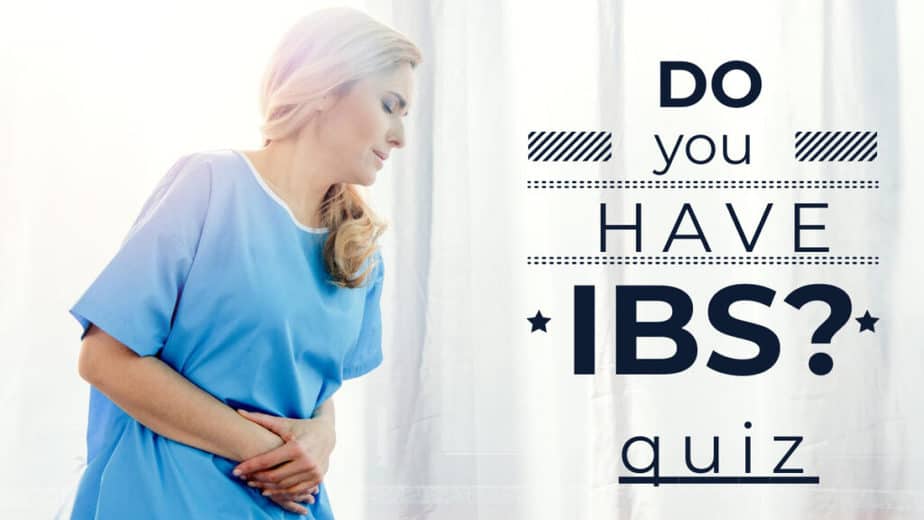If you suffer with IBS, then you know how many different factors can have an effect on your condition. Certain foods or activities may aggravate your IBS, and certain medications that you take, too.
Did you know that medications such as birth control can make your digestion problems worse?
This guide will help you understand what IBS is, and whether birth control can affect your digestive health.
When we talk about birth control, we are referring to the types of birth control that contain hormones such as the patch, the pill, and hormonal IUDs.
These types of birth control will have hormones such as estrogen or progesterone that could change how your body works, and may have a connection with your digestive system, and your IBS condition.
But first, what exactly is IBS, and what are the symptoms?
What is IBS?
IBS stands for irritable bowel syndrome. This is a medical condition that affects the digestive system. The most common IBS symptoms are stomach cramps, diarrhea, bloating, constipation or abdominal pain.
If you are diagnosed with IBS, the condition could last a lifetime, but in most cases, symptoms can be effectively managed so the condition doesn’t affect your everyday life. Severe symptoms may occur, but usually just for a brief period of time.
While there is no definitive cure, there are medications that you can take to lessen the symptoms or relieve pain that you are experiencing. Learn more about What Medications are Good for IBS.
IBS can be influenced by oversensitive nerves in the gut, dietary factors, lifestyle, or emotional factors, like anxiety or depression.
What you may not know is that the majority of IBS sufferers are actually women.
It has been suggested that higher prevalence in women could be due to hormone levels, which begs the question as to whether hormonal birth control can have an effect on your IBS.
Let’s first take a look at what hormonal birth control actually is.
What Exactly Is Considered Birth Control?
Hormonal birth control is used to prevent a woman from getting pregnant. This type of birth control often contains synthetic female hormones such as estrogen or progesterone, or a combination of the two.
Various types of birth control such as ‘the pill’ have been around for decades, and are highly effective in preventing unwanted pregnancies, and controlling the menstrual cycle.
There are many different types of hormonal birth control including pills, patches, hormonal IUDs (intrauterine devices), implants placed into the skin, and intravaginal rings. The most common is a birth control pill.
There are hundreds of different ‘pills’ that are formulated for the maximum efficiency, effectiveness, while minimizing the side effects. Many people react differently to these pills, or see more successful results on certain pills as opposed to others.
Originally, birth control pills contained 3 weeks of hormone containing pills and 1 week of placebo, during which the menstrual cycle occurs.
Newer pills are taken continuously for months and result in a period once every 3 months. Some pills need to be taken at the same time every day, or they are less effective. This can be difficult to remember.
Most hormonal birth control pills will include estrogen and/or progesterone to stop the female’s body from releasing an egg during ovulation, which could lead to a potential pregnancy. If there is no egg released, pregnancy will not occur.
However, there are so many different types of birth control, that many can have adverse side effects for some people. In addition, these types of birth control can also affect or increase your IBS symptoms, too.
Can Birth Control Affect My Digestive System?
Unfortunately, yes, birth control can have an effect on your digestive system.
Many studies suggest that your birth control and your IBS may be connected, and birth control can increase the symptoms of IBS such as abdominal pain, constipation, or diarrhea.
Birth control pills often lead to water retention and bloating.
Can Birth Control Cause Diarrhea?
For many women, the symptoms of IBS such as diarrhea can be worsened with birth control medications, whereas others can experience it without taking birth control at all.
In other cases, you may find that your symptoms such as diarrhea are a little milder when you are on birth control with consistent levels of hormones.
It depends on the person, and what their IBS symptoms are like without being on medication, to see whether there is a real effect.
Can Birth Control Cause Stomach Pain?
A very common symptom of IBS is stomach pain or cramps. These can worsen with certain meals, and you may feel more pain while eating, as the intestinal muscles contract.
While this can cause a lot of discomfort, you may find some comfort in the fact that hormonal birth control that contains estrogen can help make you more tolerant of stomach pain!
Estrogen can stimulate release of serotonin, which affects brain chemistry and may help reduce your body’s sensitivity to the abdominal pain, cramps or altered bowel habits.
Can Birth Control Cause Constipation?
One of the most common types of IBS, is IBS-C (constipated related IBS). When you eat, your intestinal muscles contract to move it along the digestive tract.
If things move too slowly, abdominal pain, cramping and bloating can occur.
Bowel habits tend to fluctuate during a menstrual cycle with most women experiencing more symptoms just prior to their periods due to a drop in hormone levels.
Many women can suffer from constipation during the menstrual cycle, but having additional estrogen in the body from hormonal birth control can sometimes exacerbate this and worsen IBS.
Can Birth Control Cause Flatulence?
The bad news is that birth control can cause flatulence, however during a menstrual cycle you may see an increase in flatulence anyway!
Being extra gassy is not a side effect of taking birth control, but if you see an increase in flatulence, then it could be a sign that your birth control is throwing your gut out of whack.
Hormonal birth control can cause fluid retention, bloating and often exacerbates constipation or diarrhea.
The gut is made up of a delicate microbiome, or what many people refer to as the gut flora.
This can be thrown out of balance when there is more bad bacteria than good bacteria in the microbiome, which can cause problems such as flatulence, diarrhea and constipation.
Hormones have been shown to influence the intestinal microbiome. This can upset the delicate balance of the digestive system, causing flatulence, diarrhea, cramps, stomach pains and constipation.
Most of the time, this happens due to something we call dysbiosis. This is when the gut flora, or the microbiome of your digestive system is thrown off by an influx of bad bacteria, which overwhelms the good bacteria.
This dysbiosis can lead to bloating, gas, and flatulence.
Can I Minimize My IBS Symptoms While On Birth Control?
There are ways that you can counteract your IBS symptoms, and lessen them over time. But first, you need to know what it is that causes your IBS to flare up.
For instance, if you notice that you seem to have worse symptoms during stressful periods in your life, or if you are struggling to sleep at night, then learning to manage stress or get a better night’s sleep may help reduce IBS symptoms or severity.
Just because hormonal birth control can have an effect on your IBS condition, does not mean that you should not be using it. Birth control can be used for a variety of positive reasons, not just to prevent pregnancy.
For instance, it can regulate periods, prevent heavy bleeding, and reduce acne.
Talking with your doctor about your IBS symptoms may help them determine which pill or other type of birth control may be best to help minimize or even manage your IBS symptoms.
Luckily, you can also try other IBS treatments to minimize your symptoms. For example, reducing the stress in your life can limit the amount of IBS flare-ups you have.
In addition, participating in regular exercise and consuming a healthy diet can help with bowel regularity and IBS. You should drink plenty of water, and limit your intake of fatty foods, alcohol and caffeine which can irritate the gut.
Can I Take Probiotics While Using Birth Control?
Another way you can improve your IBS symptoms is to take probiotics. These can have a range of benefits for your digestive system and can improve your gut health.
For instance, probiotics are used to balance and benefit the microbiome, or gut flora. You can also use prebiotics to improve your gut health, too.
The good news is that you can take both probiotics and prebiotics while using birth control to help regulate and minimize your IBS symptoms.
Conclusion
Some studies show that different types of birth control can be linked to worse IBS symptoms such as bloating, gas, pain, diarrhea and constipation.
However, this does not mean that you should not use birth control.
What you can do is speak to your healthcare provider about your concerns, and find a birth control method that’s right for you.
For more articles to help you with IBS, check these articles out:


